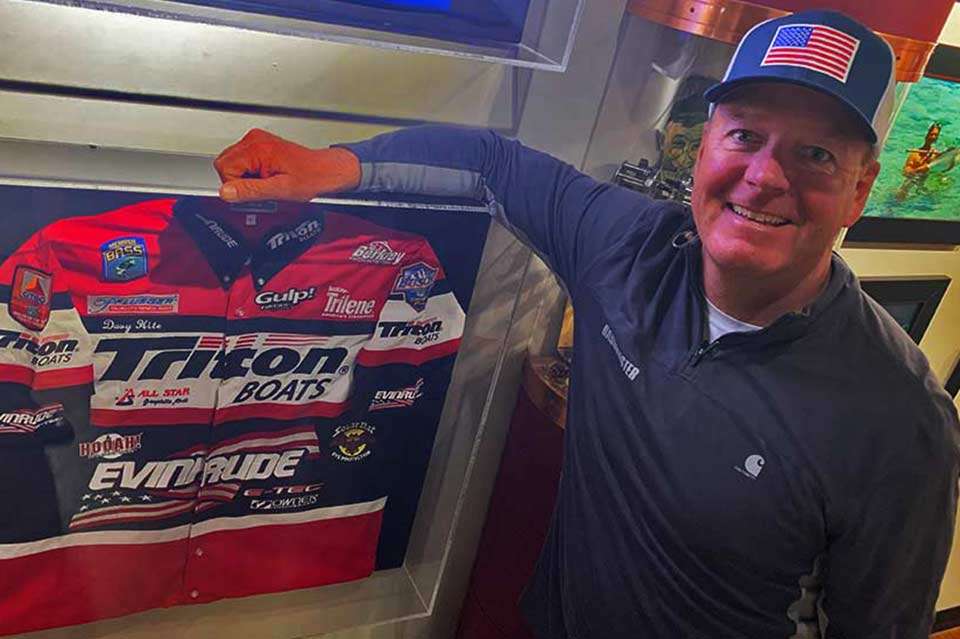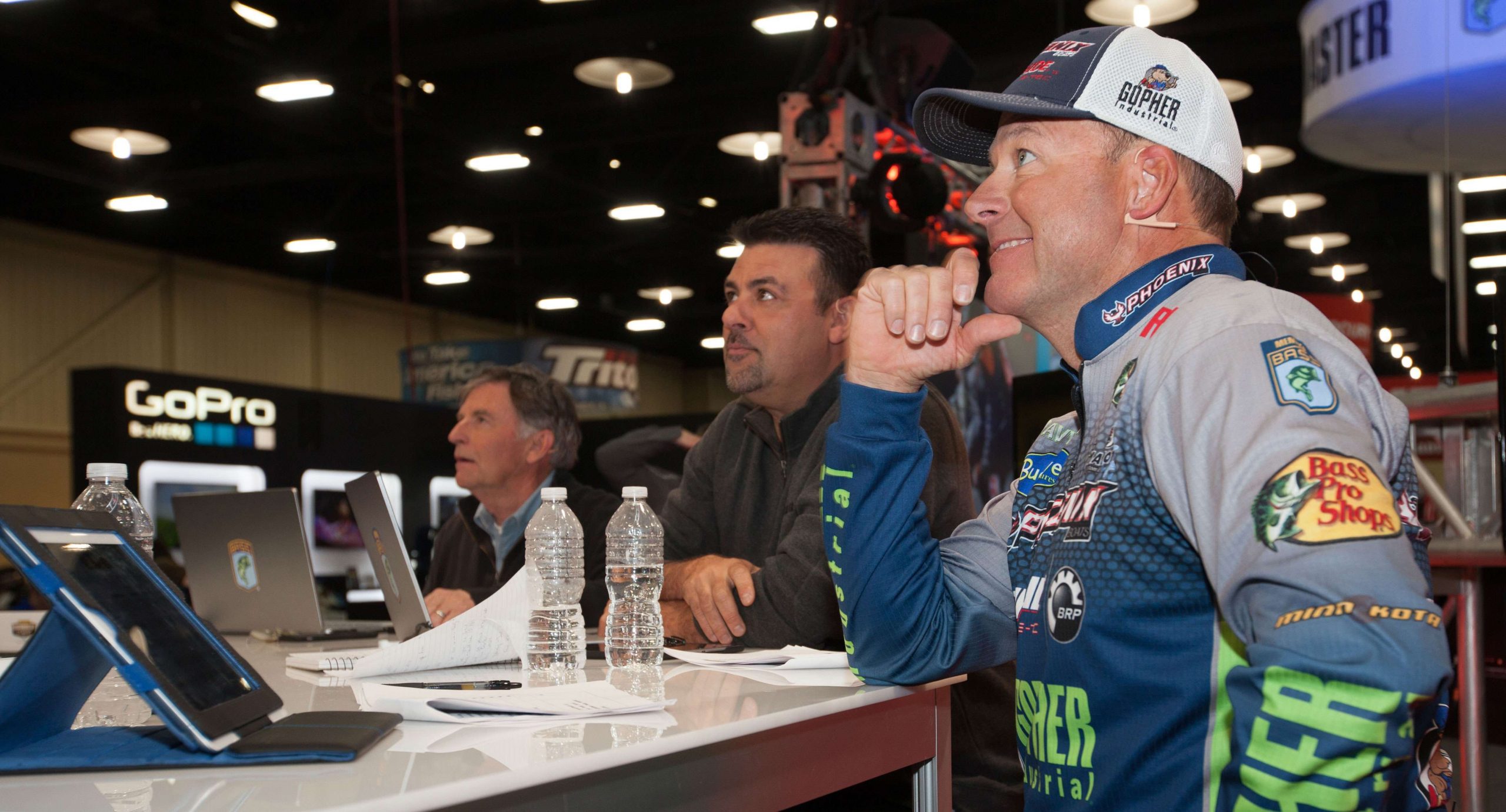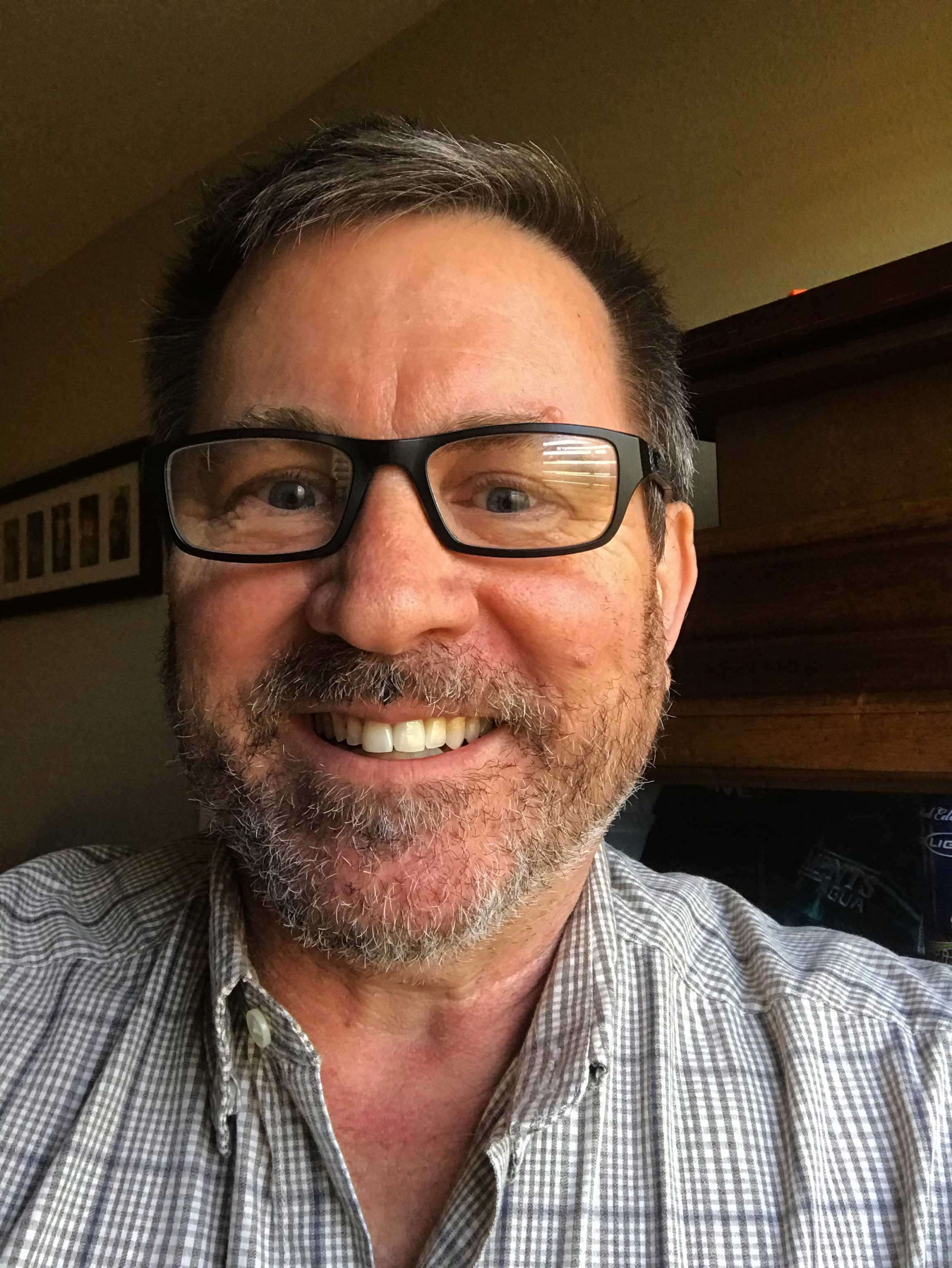
Getting ‘caught up’ with media might have cost Hite 1996 Classic
Anglers on the water know a camera showing up on them is a positive sign, but Classic champ Davy Hite relates how too much can be taken from it – he might have lost a Classic because of it.
Hite said he went into Day 3 of the 1996 Classic on Lay Lake with a shot at winning. Standing in third place, he drew a TV camera then late in the day some more arrived. That’s when George Cochran flanked him.
“I had a camera in my boat, and there were only three or four cameras then,” Hite said. “I caught a limit early, like in the first 10 minutes. With about an hour of fishing left, two more camera boats showed up. Then other people in the media started showing up all around me.”
When that happens, anglers assume the best and see that their chances to win are good. The Bassmaster LIVE crew tries never to let any angler know exactly where they stand, which could potentially change their plan of attack, but most get a pretty good idea they must be in the hunt.
“Them coming to you in the morning when you catch a limit is one thing, but with an hour to go on the final day?” Hite said. “And they started asking me questions like, ‘What would winning a Bassmaster Classic mean to you and your family?’ They’re asking me this with an hour to go. And I got caught up in the moment.”
Meanwhile, a team of Bass Fishing Hall of Fame member Bob Cobb and cameraman Tim Miller had difficulties covering Cochran, who was back in a stump-filled shallow bay.
“Cochran would get up on plane, and I think close his eyes and run through there,” Cobb said. “I think he ended up plowing a ditch to get out of there.
“We did get to him with a camera. Tim Miller and I had to walk the bank and try to follow George. He caught some fish for us on camera. There were fire ants all over the place. We had to fend off a barking dog that charged us. We were obviously in his territory.
“That was the pitfalls of covering that tournament. We did get some fish catches, but we had to carry a 12-volt battery to record. Toting that thing was a chore in itself. I praise all those guys I worked with for the things they had to do” to get the shot.
With it ending pretty much as a two-man race, the rest of the media went to Hite, who sort of convinced himself he might have had the Classic won.

“And I was loving it,” he said. “I’m like, ‘I’m no dummy. I got this thing won.’ Everybody is coming to me with an hour to go. They’re wanting to get the hot story from the guy who’s about to win the Bassmaster Classic.
“It’s not their fault. I’m responsible for keeping my focus on the water, and I got distracted. I totally did. Got caught up in the moment.”
Hite laments it 23 years later as he prepares for this third season as analyst for Bassmaster LIVE and ESPN2 shows. He said if he had just kept his head in the game, he might have culled the 17 ounces he needed to claim the trophy.
“Not saying I would have 100 percent caught another fish, but I knew with all my heart, when it was all said and done, I was distracted and did not stay focused,” he said. “In that last hour, George Cochran culled a few ounces at a time but he culled three times and beat me. I learned a valuable lesson – don’t count your chickens before they hatch.”
That lesson helped him close out the August 1999 Classic on the Louisiana Delta, to this date still the hottest championship ever with sultry 96 degrees on the first and third days.
“I made a commitment to myself that if I ever had another opportunity to win, I will not let up for one second until the final check-in with Trip Weldon,” he said. “So then when I won a few years later, I had a 5-pound lead going into the final day. I never stopped to drink a bottle of water. I gave it 1,000 percent and ended up winning by 10 pounds. I felt like I had it won with 20 pounds with a 5-pound lead, but I was not going to stop and answer any questions or do anything else but fish.”
So the takeaway for anglers is that just because a cameramen shows up, they don’t necessarily have anything in the bag. That’s even more true today, because LIVE has added on-the-water cameras and has the capability to Skype with any angler in the field.
“LIVE has changed our sport,” Hite said, “and when you start putting 10 cameras out there each day, plus Skype showing anglers doing well who might not have been in that top 10, it’s absolutely incredible.”
Hite, along with hosts Tommy Sanders and Mark Zona, are excited to bring the 2019 GEICO Bassmaster Classic presented by DICK’S Sporting Goods to viewers this week, which will be a farewell performance at B.A.S.S. for many pros who left for another circuit after qualifying last year. The shows air each day of competition, Friday-Sunday, from 8-11 a.m. ET and noon-3 p.m.
“I’m really looking forward to it,” Hite said. “Whether I was fishing the Classic or covering it now with the LIVE crew, it’s the highlight of my year. It’s the biggest week in our sport. Whether you’re doing commentary or fishing, we all get amped up for the Bassmaster Classic.”
Hite helped Bassmaster Elite Series coverage with his popular “First Look” interviews of anglers coming off the water a couple years before retiring from competitive fishing after the 2016 Elite season. He had a stellar career, tying for ninth all-time with eight B.A.S.S. victories. After his close Classic miss in 1996, Hite won his first Toyota Bassmaster Angler of the Year title the next year and claimed his second in 2002, joining an exclusive fraternity of 11 with more than one AOY. He’s among the 12 anglers who have won both an AOY and a Classic.
Offering his expert analysis, from what’s happening on the water and what might be going through the anglers’ minds, has been well-received. With a couple years under his belt, he’s grown more comfortable in his new career.
“It’s like my first Classic as a fisherman,” Hite said. “I was nervous. I was so star struck by being there. You feel more comfortable when you’ve done something a few times. I probably put undue pressure on myself for the sport, because it’s been so good to me and my family.
“I want to do a good job. I try to. I want to make the fishermen the stars, but also understand the pressure they have on them. Some things you really can’t reveal early on the week that later on you can. You have to be respectful of those fisherman, but you also want to let the audience know what’s going on. You have fans watching from all over the country, and other countries, so you want them to feel like they’re there. You have to kind of ease in that secret information so you’re respectful to those fishermen. I really understand that well because I’ve been on that side of the fence.”
And he certainly understood what a camera visit while he was fishing meant.
“I figured that out pretty quickly,” he said. “I hate to say this, but it’s a fact – when you see that cameraman coming and you’re on a roll and you’re catching them, you’re real excited. But you hope it doesn’t kind of mess with your mojo.
“When you see cameras show up and you’re having a good day, you know you’re really having a good day.”
Although he admits that today, with such increased coverage, it might not be as telling a factor as it had been.

